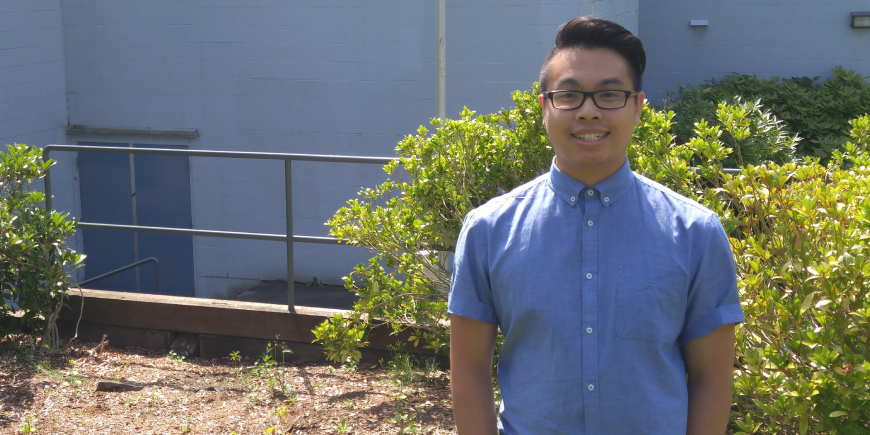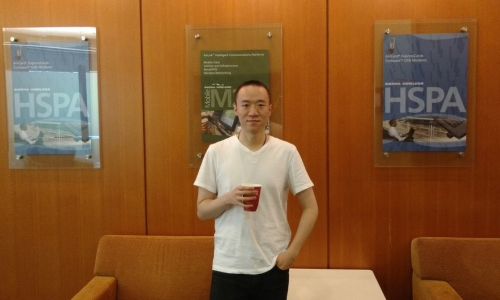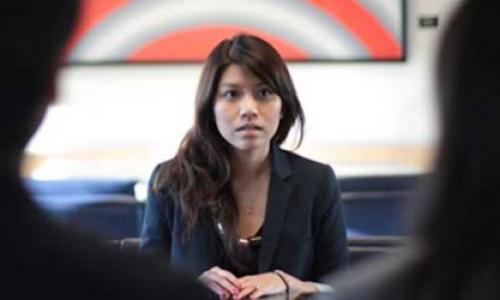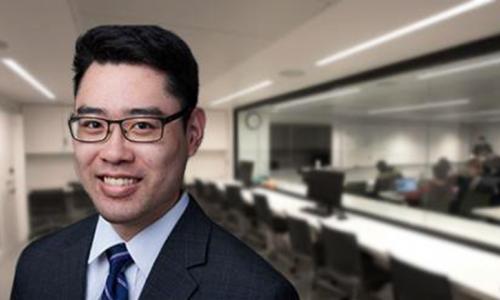
With the third year of my undergraduate degree coming to a close, I wanted to find a way to apply the knowledge I had accumulated from textbooks and by attending lectures. I figured the best way to do this was to apply it in the real world of work. However, I had never gone through a formal process of searching and applying to jobs; a frightening and overwhelming proposition to face. So, I applied to co-op in pursuit of my first work term, knowing that in order to go anywhere, I had to start somewhere.
After my first application and only interview, I was hired as a Special Education Assistant (SEA) for the Mediated Learning Academy (MLA). My confidence was high and I was excited at the thought of beginning my journey in the education profession. Prior to applying, I had spent many years working with a large range of children, varying in age, multicultural backgrounds, socioeconomic status, and home situations. However, this would be my first time working with children in an academic setting. Despite reaching a new chapter to bookmark in my repertoire, I had a very strong belief my previous experience would overcome the learning curve of the job.
“When you do anything, be humble or you will be humbled.” Those were the words of my father that proliferated through my mind within the first ten minutes of my first day of work. As an SEA, not only was I expected to work with students with disabilities, I was also responsible for creating a safe and welcoming environment for students at the MLA so that they are able to attain their full potential, regardless of personal challenges. Little did I know that being an SEA would involve being intertwined in the student’s life, not just at school, but also through their personal life at home. With only a brief introduction to my student and his disability, my confidence was hanging in the balance.
Away from the comforts of a small lecture desk in class, I was the immediate focus of my one-to-one student. His inquisitive stare signified what he was thinking: who is this stranger? What boundaries can I push? At first, communication with one another was an uphill battle. The inability to communicate further perpetuated the anxiety and frustration for both of us. It was scary not knowing what my one-to-one was asking for, which led to many of his meltdowns. All I could think was: what do I do? Is he hurt? What does he need me to know?
My in-class knowledge was not aiding me in this situation. You can have a wealth of information memorized and stored up in the brain from sitting in lectures and sifting through textbooks, but it is far more difficult applying information in real life encounters. I thought that having extensively studied theories about working with children and with my wealth of work and voluntary experience, it would be an effortless co-op term. I learned, however, that the pace, demands expected of an SEA and the attention to detail toward the student were all beyond what I had first anticipated. Even though I didn’t know everything there was to know about working with children, there was a group of specialists who did. Teachers, Speech Pathologists, and Occupational Therapists were all at my disposal to fly under their wings, to learn techniques such as how to teach students with autism and other learning disabilities. They were extremely helpful in communicating expectations and exercises that I would be able to instantaneously put into practice.
The greatest gratification was being able to form a strong, trusting relationship with my student. This is especially important when we started novel activities, as he was more willing to try them without hesitation compared to the start of my work term. Originally, it was a daily struggle to find the confidence within myself to work within a new system, a new student, and a new capacity that was beyond my previous work experience. After the first few weeks on the job, it felt like things were falling out of place, when in fact they were falling into place. The struggles and many rough days were all a means of establishing a formidable foundation for a trusting relationship between my one-to-one student and myself. This unbreakable bond allowed him to test the waters in new areas in academics, occupational therapy exercises, and social interactions, which was beyond the amazement of MLA staff. Not only did this experience open new doors for my student, but it also opened my eyes. I always considered myself to be a patient person, but working daily with a student with a disability forced me to be more introspective of his feelings. This allowed me to reach a new level of patience I had never expected.
From my experience at MLA, I learned that you cannot dip your feet into the waters of a co-op job, rather, you have to immerse yourself fully in the experience. Being in this process truly allowed me to experience what it is like to work in the education field, from managing students in a classroom, communication with their parents, understanding families’ backgrounds, and how these factors affect the children in school. From the moment I met my student, I was humbled. No matter the degree of experience you bring to any situation, there is always something you won’t know. But not having the answers to everything is alright. Just remember to keep yourself humble, be willing to learn and to be teachable, and the doors to many more opportunities will open.
Beyond the Blog
- Be sure to visit the Arts & Social Sciences Co-op Blog for more great reads from outstanding Arts students.














